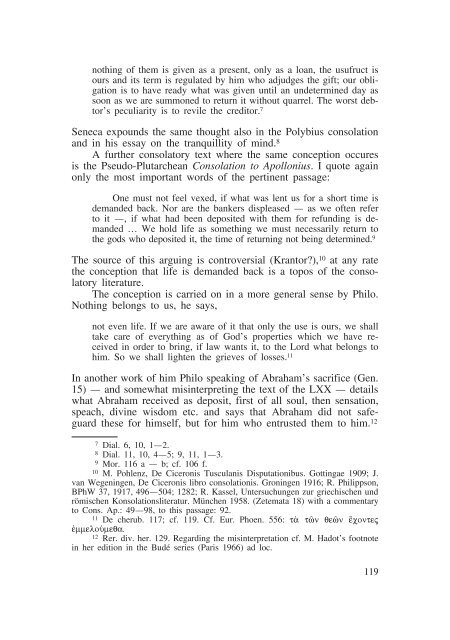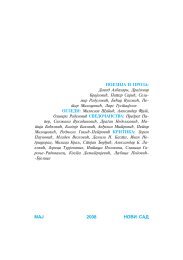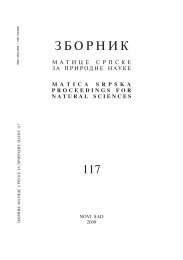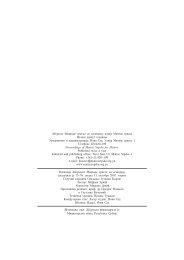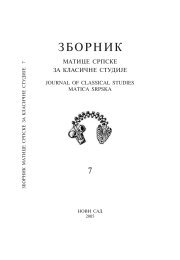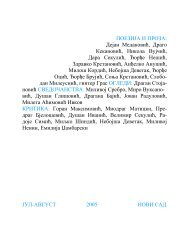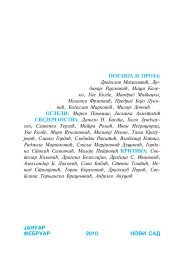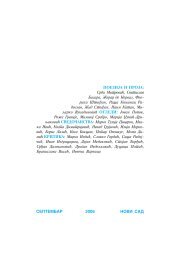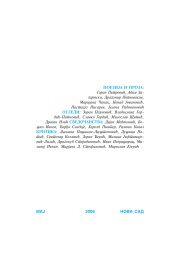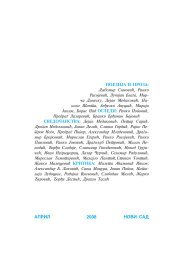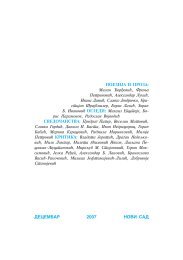Create successful ePaper yourself
Turn your PDF publications into a flip-book with our unique Google optimized e-Paper software.
nothing of them is given as a present, only as a loan, the usufruct is<br />
ours and its term is regulated by him who adjudges the gift; our obligation<br />
is to have ready what was given until an undetermined day as<br />
soon as we are summoned to return it without quarrel. The worst debtor's<br />
peculiarity is to revile the creditor. 7<br />
Seneca expounds the same thought also in the Polybius consolation<br />
and in his essay on the tranquillity of mind. 8<br />
A further consolatory text where the same conception occures<br />
is the Pseudo-Plutarchean Consolation to Apollonius. I quote again<br />
only the most important words of the pertinent passage:<br />
One must not feel vexed, if what was lent us for a short time is<br />
demanded back. Nor are the bankers displeased — as we often refer<br />
to it —, if what had been deposited with them for refunding is demanded<br />
… We hold life as something we must necessarily return to<br />
the gods who deposited it, the time of returning not being determined. 9<br />
The source of this arguing is controversial (Krantor?), 10 at any rate<br />
the conception that life is demanded back is a topos of the consolatory<br />
literature.<br />
The conception is carried on in a more general sense by Philo.<br />
Nothing belongs to us, he says,<br />
not even life. If we are aware of it that only the use is ours, we shall<br />
take care of everything as of God's properties which we have received<br />
in order to bring, if law wants it, to the Lord what belongs to<br />
him. So we shall lighten the grieves of losses. 11<br />
In another work of him Philo speaking of Abraham's sacrifice (Gen.<br />
15) — and somewhat misinterpreting the text of the LXX — details<br />
what Abraham received as deposit, first of all soul, then sensation,<br />
speach, divine wisdom etc. and says that Abraham did not safeguard<br />
these for himself, but for him who entrusted them to him. 12<br />
7 Dial. 6, 10, 1—2.<br />
8 Dial. 11, 10, 4—5; 9, 11, 1—3.<br />
9 Mor. 116 a — b; cf. 106 f.<br />
10 M. Pohlenz, De Ciceronis Tusculanis Disputationibus. Gottingae 1909; J.<br />
van Wegeningen, De Ciceronis libro consolationis. Groningen 1916; R. Philippson,<br />
BPhW 37, 1917, 496—504; 1282; R. Kassel, Untersuchungen zur griechischen und<br />
römischen Konsolationsliteratur. München 1958. (Zetemata 18) with a commentary<br />
to Cons. Ap.: 49—98, to this passage: 92.<br />
11 De cherub. 117; cf. 119. Cf. Eur. Phoen. 556: �� ��� ���� �������<br />
������������<br />
12 Rer. div. her. 129. Regarding the misinterpretation cf. M. Hadot's footnote<br />
in her edition in the Budé series (Paris 1966) ad loc.<br />
119


